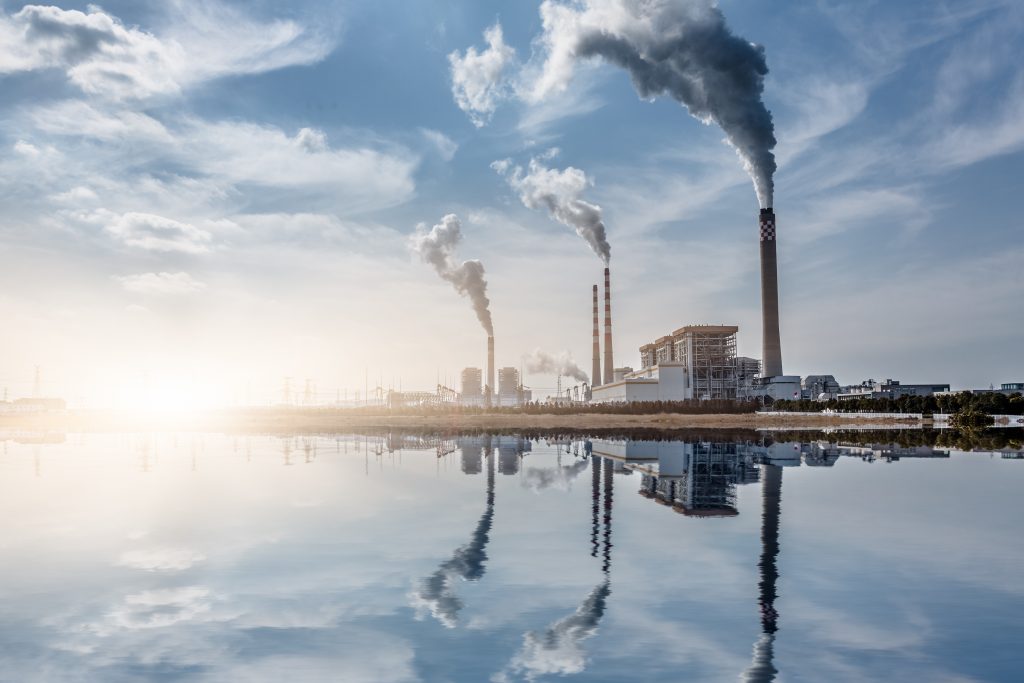Today we have a guest post from Justin Fox, a graduate of the University of Kent, having studied History here from 2012-2015.
Using the analytical skills he developed during his time here, he now works as a writer within numerous fields, from environmental affairs to politics. Always interested in current affairs and keen to give something back to the University, he saw the launch of the new blog as an opportunity not to be missed!
……..
As the threat of irreversible climate change draws ever nearer, humanities collective need to tackle the effects of pollution and global warming has never been more necessary. Achieving a sustainable solution to the Earth’s environmental issues is paramount if we wish to continue with our current rate of consumption, and a failure to address key issues affecting the planet is simply not an option looking forward.
Out of all of the various sources of pollutant gases, commercial industry is one of the most notorious contributors. The scale of transport related carbon emissions caused as byproducts of such production is truly shocking, and the statistics tell a similar story. A Chinese study has recently concluded that approximately 22% of early deaths caused by air pollution come about due to production of ‘products destined for a foreign market’. Whilst it would be unfair to make a sweeping statement and say that no action is being taken by corporate giants to reduce their carbon footprint, there is still more work that needs to be done.

Consumer Spending
Arguably, the best place from which to affect change is from the perspective of us as consumers, whose wallets carry significant influence. Quite simply by choosing to purchase more from those companies with a more conscientious environmental agenda, hopefully that can galvanize those who don’t at present into taking action. For example, in the takeaway drinks industry, there are massive problems with disposable coffee cups ending up as rubbish as large chains fail to provide the facilities for the recycling of these cups to take place. Some however have begun to sell reusable alternative cups which whilst a start, seems to be shifting responsibility from supplier to customer, when it should be more of a joint effort between parties.
On the other hand, businesses such as Lush have carved out a niche within the cosmetics industry using sustainability as their unique selling point, to the extent that they can charge more than their rivals and still enjoy a reputation as a top quality brand. More and more young people in particular have been found to take considerate policies such as these into account, so it’s far from the case that cheaper automatically equates to better selling goods.
This culture of sustainability of course though should not be contained within just the one industry, and can be applied to nearly any other, from clothes to car buying. Whilst they tend to be somewhat costlier, environmentally responsible goods are the gateway to getting such ideals to go mainstream, and to affect real change at the top of the business world.
Cut Down on Plastic Usage
Despite being crucial in countless products, there are various forms of plastics that have a terrible effect on the environment, and on wildlife in particular. We’ve all seen the horrific images of animals stuck in various bits of thrown away garbage and aquatic life choking on smaller items, and each case is another argument why more must be done to amend our current ways. Microbeads in particular are notorious, which damage marine life tremendously despite being so minute.
To reduce the scope of this issue, we quite simply need to reduce the amount of plastic that we consume. There’s so much that gets tossed away needlessly, such as with bottled water-roughly 176 billion bottles every year will need disposing of despite it being a resource available (in the developed world at least) from literally any tap. A lot of work needs to be done to restore the world’s oceans and seas, and taking control of the plastic problem is a key element of most plans to do so.
If the usage of plastic is unavoidable however, it’s vital that the adequate facilities are in place to allow for the recycling of the material and that the public is made aware of what forms of plastic can be recycled and what can’t. All too often, recyclable material is instead sent to landfill due to contamination, as well-meaning people have made a mistake and put non-recyclable items in with them. Going forward though the ideal scenario would be for biodegradable plastics to become standard usage in all walks of life, as part of a transition towards 100% recyclable plastics in all forms. Water is quite literally the planet’s lifeblood, and ensuring its security should be one of our highest priorities going forward.

Buying Local
Something that often flies under the radar when discussing environmental practices is the significance of local produce. Typically part of the debate around organic farming and ‘food miles’, by buying local goods, small-scale businesses can profit- businesses that often rely on traditional methods of production which are less environmentally damaging.
The close proximity between producer and buyer also cuts down on transport emissions, which as we discussed earlier is a major cause of air pollution. Getting even a small amount of long-haul lorries off of the roads can only be a good thing, but these local producers rely on the loyalty of their market to survive. Against larger competition who can offer a wider variety of services, it is once more up to us the customer if we are willing to perhaps pay a bit more and look a bit further for the most eco-beneficial bits for sale.
Furthermore from a global perspective, supporting local sources of production is vital for the development of economies in less well-off parts of the world. Aid from wealthier countries whilst well intentioned, often cripples economies as producers of any goods cannot compete with literally free handouts. Developing the global economy at a town and village level is vital to help the planet as it is only when this foundation is laid that sustainable development practices can be introduced. Actively choosing fair trade products wherever possible will do wonders in this respect, providing critical support for those in need and ready to work to create their own solutions.
Apply Pressure on Environmental Offenders
If more diplomatic efforts fail to yield results, unfortunately the best course of action is for concerned environmentalists may very well be to organise campaigns highlighting various companies disregard for nature, so as to turn public opinion against those who refuse to listen to reason.
Such activism may seem exhausting and often fruitless when faced with an opponent with such extensive resources, but many peaceful movements have done a fine job at persuading big business to rethink their approach to sustainability. John Lewis is a prime case where this worked in 2010, when animal activists led a protest against the chain’s usage of wool obtained via ‘mulesing’, a particularly nasty way of obtaining wool from lambs. Their supplier in Australia even agreed to invest $23 million in finding an alternate solution, all thanks to the efforts of a comparatively small group of concerned individuals.
Ultimately, the most powerful weapon that individuals can bring about change to create a more environmentally minded international industrial outlook is to use our money to affect change. Business of all shapes and sizes are inherently profit-driven, and will react to consumer demand if enough of us let them know that we want sustainable practices and sources of goods, even if it costs us a bit extra. Change will come about given time and persistence, and eventually buyers, sellers and all the planet will benefit, thanks to a more thoughtful approach to global production.
Justin Fox
